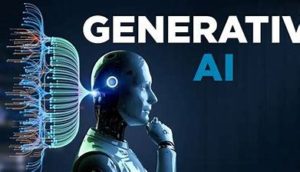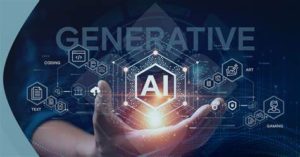STAT national technology correspondent Casey Ross reports on a generative AI system, under development by Google, that could analyze an X-ray, write a report and then have a conversation about it with a radiologist. Physicians Brian J. Browne and Art Papier note that tools supporting clinical decisions “have evolved tremendously,” and “now go beyond providing alerts and can assist physicians to recognize patterns and aid in differential diagnosis,” in a market that by 2025 is expected to reach $10.8 billion. Some hospitals, like one STAT’s Amber Castillo writes about, are hiring “digital access coordinators,” to train patients in digital health tools like electronic health records, online registration forms, and home blood pressure cuffs, helping to address health care system inequities. And Jayne Williamson-Lee describes in his e-book how health tech can infuse medical records with a much fuller picture of a patient’s disability.
could analyze an X-ray, write a report and then have a conversation about it with a radiologist. Physicians Brian J. Browne and Art Papier note that tools supporting clinical decisions “have evolved tremendously,” and “now go beyond providing alerts and can assist physicians to recognize patterns and aid in differential diagnosis,” in a market that by 2025 is expected to reach $10.8 billion. Some hospitals, like one STAT’s Amber Castillo writes about, are hiring “digital access coordinators,” to train patients in digital health tools like electronic health records, online registration forms, and home blood pressure cuffs, helping to address health care system inequities. And Jayne Williamson-Lee describes in his e-book how health tech can infuse medical records with a much fuller picture of a patient’s disability.
“Google’s generative AI system proved it can answer medical exam questions. But now the company is attempting a bigger leap — infusing its model with medical images such as X-rays and mammograms to help it communicate with doctors about data routinely used in patient care. The effort, unveiled earlier this year, marks the beginning of a quest to make generative AI a more dynamic tool in medicine. While prior iterations of AI could either analyze images, or respond to questions, the company’s new model, known as Med-Palm 2, aims to put those capabilities together in a single system. “Until this year, this was not on the table,” said Greg Corrado, a senior research scientist at Google. “Now you can build a system — and this is amazing to me, honestly, I did not expect this to happen now — but you can build a system where you give it an image, it writes a report, and then you can ask it follow-up questions.”
“That requires training the AI on data from telemetry devices, codes used in electronic health records, laboratory results, and pictures created by CT machines, X-rays, and a host of other imaging tools.”
For more articles in the series on Artificial Intelligence, go to:
- An AI (Artificial Intelligence) Primer
- AI’s Capabilities
- AI Achievements
- ChatGPT (or any AI bot) and Your Medical office
- Teaching AI in Medical School
- Patient Trust in AI Chatbots & ChatGPT
- Competitors to ChatGPT
- AI Policies and Regulatory Challenges
- Ai Bias
- AI’s Limitations, Concerns and Threats
- What AI Can’t and Shouldn’t Do
- AI and Accountability
- The Dangers of AI
- The Future of Generative AI
- AI and Medicine
2Ascribe Inc. is a medical and dental transcription services agency located in Toronto, Ontario Canada, providing medical transcription services to physicians, specialists (including psychiatry, pain and IMEs), dentists, dental specialties, clinics and other healthcare providers across Canada. Our medical and dental transcriptionists take pride in the quality of your transcribed documents. WEBshuttle is our client interface portal for document management. 2Ascribe continues to implement and develop technology to assist and improve the transcription process for physicians, dentists and other healthcare providers, including AUTOfax. AUTOfax works within WEBshuttle to automatically send faxes to referring physicians and dentists when a document is e-signed by the healthcare professional. As a service to our clients and the healthcare industry, 2Ascribe offers articles of interest to physicians, dentists and other healthcare professionals, medical transcriptionists, dental transcriptionists and office staff, as well as of general interest. Additional articles may be found at http://www.2ascribe.com. For more information on Canadian transcription services, dental transcription, medical transcription work or dictation options, please contact us at info@2ascribe.com.

